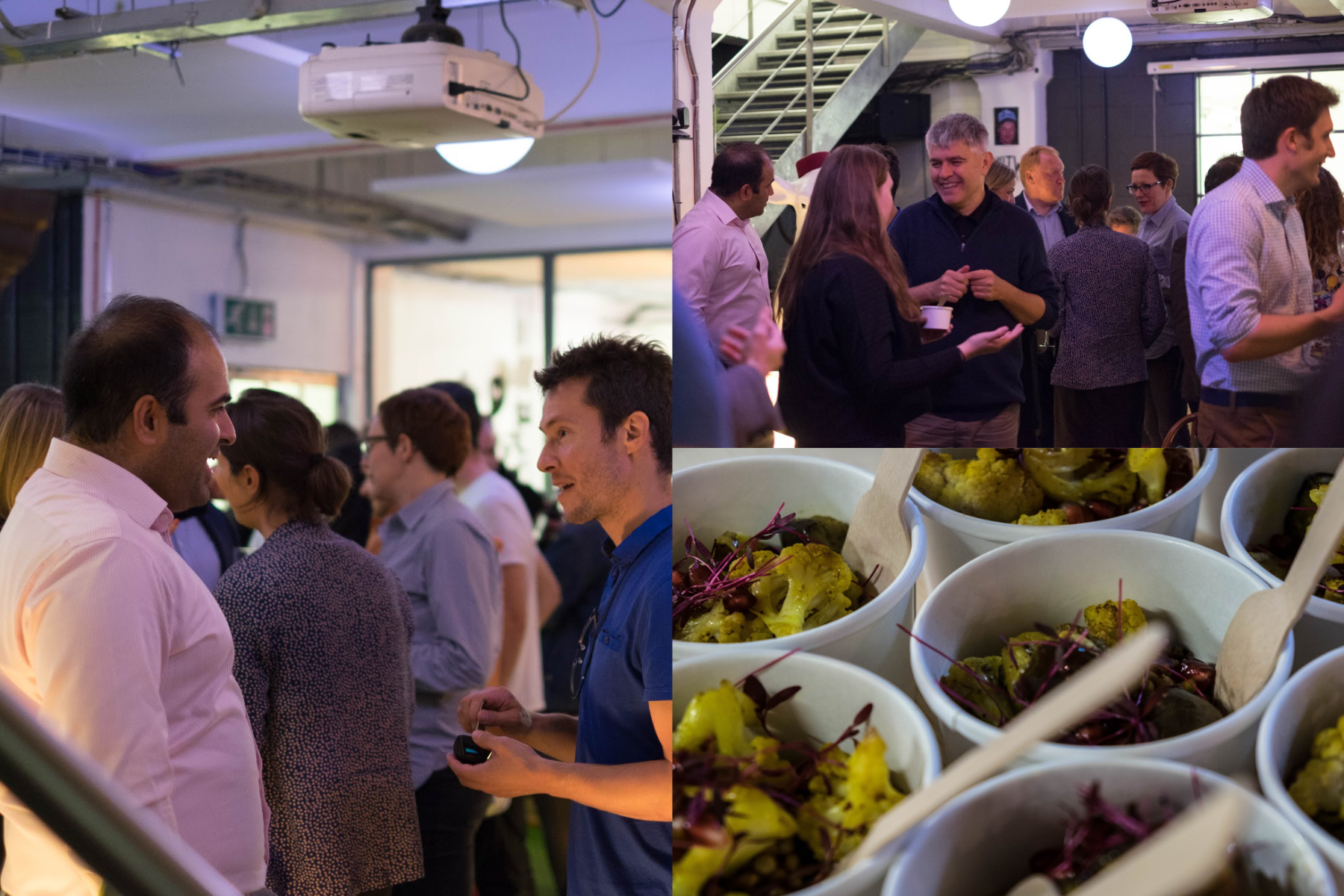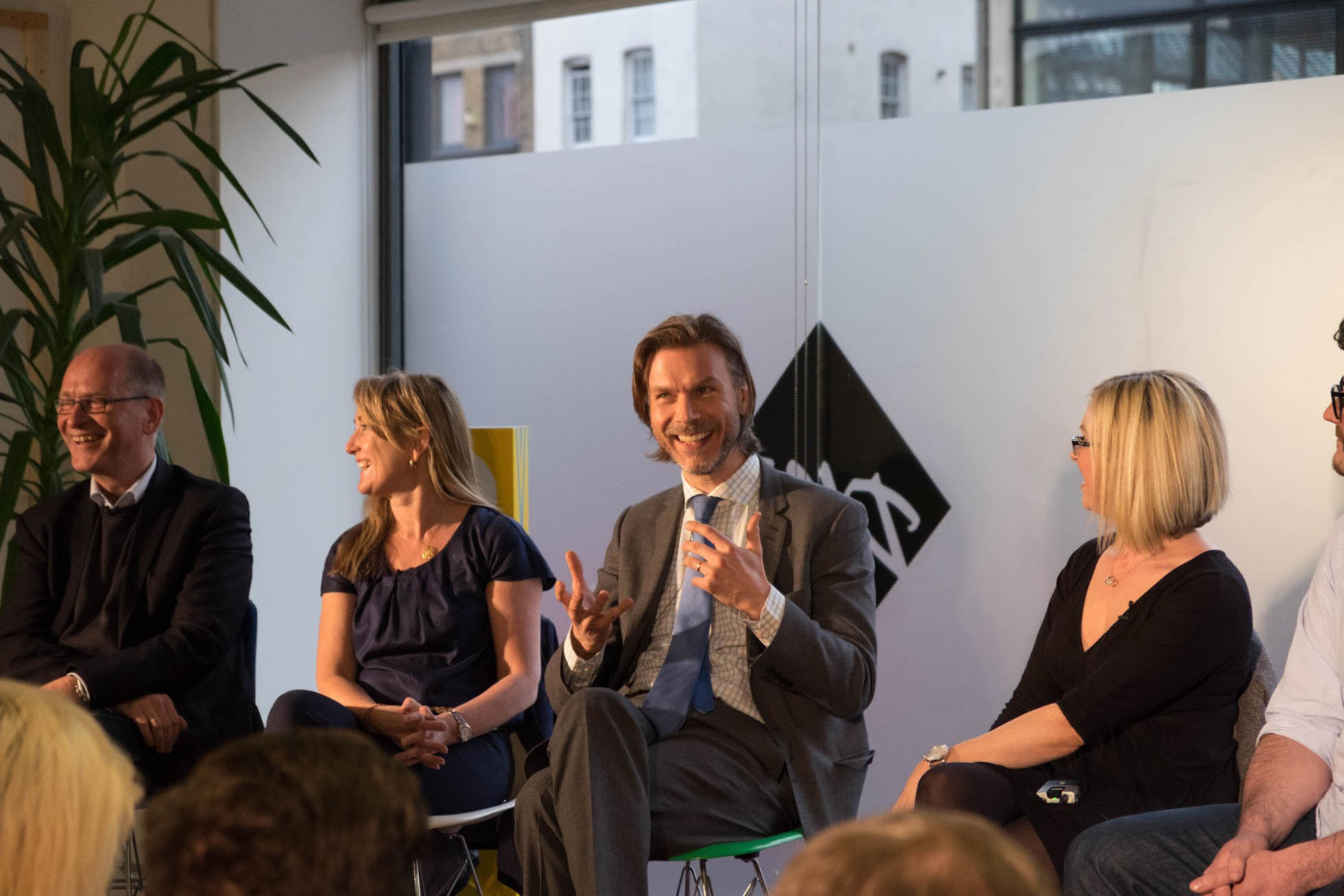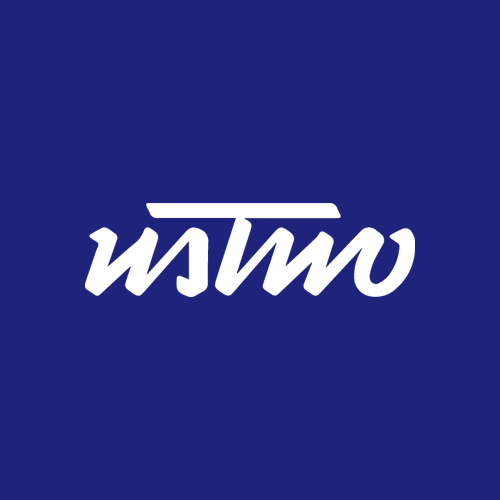We believe that collaboration can help the healthcare industry to develop innovative products, services and ways of working that benefit the entire system. The delivery of person-centred care depends upon our ability to create bridges between institutions, businesses and designers. Which is why, at ustwo, collaboration is the cornerstone of every health project and partnership we’re involved in.
As the digital health market grows and the NHS continues to look for partners to develop integrated solutions, we assembled a panel of industry leaders and visionaries to discuss the opportunities for innovation and the milestones to adoption – and how we can work together across sectors to scale these new solutions.
Read on for a summary or watch the discussion in full below:
Embedded content: https://vimeo.com/215806137
The Landscape of Digital Health
Getting a holistic picture of the digital health space is no mean feat and, as the discussion on the night highlighted, there are many stakeholders to consider. Entrepreneurs, corporations, patients, clinicians, carers, technologists and consumers are all invested in the digital health – and all need to contribute towards shaping its future.
Start-ups have long been leading the charge when it comes to democratising healthcare and promoting tech-first solutions. Stephen Bourke from Echo – a mobile-based prescription delivery service, which he glibly refers to as ‘Deliveroo for prescriptions’ – joined the panel to shed some light on his experience working with the healthcare system as a founder. Adding another start-up perspective was Liz Ashall-Payne, founder of The Organisation for the Review of Care and Health Application (ORCHA). ORCHA are working to raise the quality of health apps so that the most efficacious digital tools are immediately accessible for consumers and clinicians alike.
However, the importance of big players in both public and private sector – those that currently deliver the day-to-day health services we depend on – is key when it comes to scaling disruption, encouraging adoption and, increasingly, investing in innovation. We were joined by Tony Young, National Clinical Director of Innovation at the NHS, and Wolfgang Wehmeyer, Head of Care Innovation at Fresenius who were able to share the insights into how established industry leaders are approaching digital healthcare.
The third pillar in this space is those who are committed to stimulating innovation and bringing together these parties to create meaningful, scalable digital solutions. Both Tony, who runs the NHS Clinical Entrepreneurs programme, as well as our final panelist Sarah Haywood who runs Medcity, a regional organisation looking to grow and stimulate life-science investment in the Southeast, were able to use their experience to comment on the value cross-sector collaboration, navigating the complex health industry bureaucracies and how to get valuable ideas off the ground.

Health App Ecosystem
Holly Brenan, ustwo Health Lead and panel moderator, kicked off with a discussion on the current state of the market. With more than 172,000 health apps out there, how many of these digital innovators are merely following the money rather than building lasting solutions? Quoting Steve Flatt, director of Psychological Therapies Unit in Liverpool, Holly asked – are we in the equivalent of the 1860s Wild West with the savvy and commercially minded seeing a proverbial gravy train and jumping on it?
Through her work with ORCHA, Liz has a comprehensive view of the current health app marketplace. She doesn’t see the number of people developing in this space as the problem – rather it’s the rate of duplication that suggests people are rushing to solutions without proper consideration of the problems they are trying to solve. For example, there are nearly 3000 apps targeting type 1 diabetes sufferers. In such an over-saturated marketplace, how do you make sure the best products are most accessible and that those empowered to use these tools find something that works?
Tony also saw something positive in the proliferation of readily available mobile solutions. For him, it’s a democratising impulse that mirrors the effect of the printing press. The doctor-patient dynamic is being transformed, they are no longer the sole purveyors of information as citizens become more engaged in their own care and empowered to make decisions. Anecdotally, he notes rarely do superficial solutions find real success – we need to be confident that consumers are able to sort the wheat from the chaff.
However, the app stores are only a shop window looking into the vast, fragmented digital health industry. Stephen argued that, in the UK, the NHS is the marketplace – a fractured network of buyers and sellers with a highly decentralised organisational structure, which makes scaling solutions very difficult. Both Sarah and Stephen emphasised the importance of taking time to understand this nebulous system at the very earliest stages of developing a digital solution in the UK. What’s your route? Who do you need to approach? Come to this too late, and the NHS can seem impenetrable.
Wolfgang suggested similar planning and forethought is integral when seeking to innovate in large corporations – many of which have complex organisational structures comparable to that of the NHS. According to him, you need to consider the incentives of all the different players with the ‘ecosystem’: find a directional force behind your innovation that allows it to be scaled and focus on making sustainable solutions, that will continue to have impact over time.

Not All Ideas are Created Equal
As the discussion moved on to examining the conditions necessary to create valuable and lasting healthcare innovations, our panelists were confronted with one of the biggest debates in this space – how can health apps be regulated without compromising the accessibility and immediacy of mobile treatments and services?
Stephen pointed out that the regulatory system in the UK is one of the most mature and safe in the world. And he was sensitive to the idea that potential extra costs from increased regulation could make it harder for start-ups to make their ideas a reality. A publicly funded system means a sales team – from the earliest stages of a startup – need to be able to navigate the maze of trusts, Clinical Commissioning Groups, hospitals and boards. Instead of selling your digital product or service to various these funding bodies – small start-ups should be using their time to fine tune their offering and focusing on unmet needs of their users.
For Sarah and Liz, more regulation is a necessity in this immature marketplace – but what this will look like is still uncertain. We need to know that any treatment we use is ‘efficacious and safe’. And, as it stands, the technical standards underpinning digital health are still very much in flux. What's the evidence base? When do you need a clinical trial? How do you even do a clinical trial for an app? Because of this uncertainty, there is still a real risk of innovators investing time and energy into the wrong things.
In terms of the impact on consumers and patients, 'regulation is critical to help people find the best solution’. If someone is actively seeking a digital solution to help ‘self-manage or keep well’, it would be a huge missed opportunity to have them use a bad app. Liz illustrated her point with the example of a girl in India who almost killed herself after using an ‘entertainment’ app where you took a supposed ‘HIV test’ by pressing your thumb on the screen. By removing these dangerous digital experiences, more people will be able to create sustainable, digital health habits.
‘How do you do a double-blind randomised trial of an app?’
Inclusive Digital Solutions
As technology advances at pace, it’s easy to get lost in visions of healthcare's AI-driven future – but the reality is human touch and empathy remain a key part of the way we treat and care for each other.
With the discussion turned to the future, Tony spoke about how we need to make sure technology doesn't create new healthcare inequalities. Social interaction and networking remain key to treatment and without them, we can alienate groups who aren't as technically able or are already socially isolated. What if your doctor's appointments are the only time you get to speak to someone all day? For Tony, solutions need to be ones that work for the whole population.
Stephen however, sees the utility of segmented thinking – ’If you design for everyone at once, you’re not going to solve any problems.’ Despite this, he is wary of creating a ‘digital apartheid’. You can’t make something great that only works for the tech savvy, leaving those not digitally included with inferior treatment. Instead, it’s more about being targeted in terms of what you are making and letting consumers find their own utility in the products. With Echo, they envisaged it would be a service for people with social anxiety or mobility problems but it has also been adopted by many sufferers of Cystic Fibrosis – something which was not accounted for in their use cases. They have learned not to make assumptions about who their app is for.
‘If we want technology to be adopted in healthcare, we have to focus on the way it makes people feel’
Collaboration is the Key
With speakers from across the healthcare spectrum, our panel gave a 360 degree view of many of the most persistent and divisive issues the industry are working through. Despite divergent backgrounds and priorities, the need for collaboration across the stakeholder groups they represent became an evident theme of the night. Wolfgang’s parting piece of wisdom spoke to that very theme – ‘Don’t try to do what you are not best at’. Collaborate with people who have the expertise you need, whether that’s business acumen, medical know-how, day-to-day experience or design-savvy.
If you're looking for more practical advice about getting your digital health idea off the ground or more expert insights into where the industry is going – you can watch the talk in full or listen to the podcast.
And, if you're looking for a partner to create digital health solutions, we’re looking to collaborate health@ustwo.com
